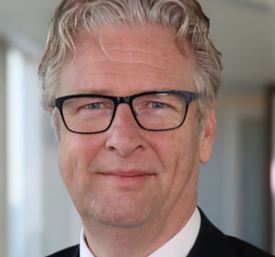The German ratification of the Unified Patent Court Agreement will most likely be decisive for the moment when the Unified Patent Court comes into existence. In an interview on recent developments regarding the UPC, Bird & Bird partner Wouter Pors told Kluwer IP Law that the Preparatory Committee and Member States are in contact to make sure there are no surprises regarding the moment the court starts functioning.
The UPC Agreement will enter into force on the first day of the fourth month after thirteen states, including Germany, the United Kingdom and France, have deposited their instrument of ratification. Earlier this month, quite surprisingly Malta became the sixth state to do so. France ratified last March.
Timing is crucial, as many parties have to prepare and, for instance, opt out patents that they do not want to bring under the jurisdiction of the UPC. An obvious way to control the process is to postpone the ratification in the UK or Germany until twelve other UPC Member States have ratified. Pors – co-organiser of the Unitary Patent Package Conference on 5 & 6 February 2015 in Amsterdam – expects that Germany, in consultation with the UPC Preparatory Committee, will delay its ratification until the moment when it is the only remaining Member State necessary for the UPC to start functioning.
 Pors is confident that many Member States, among others the Netherlands, will ratify in 2015, although the pace until now is quite slow. ‘During the ratification process, many states adapt their national IP legislation as well, to bring it more in line with the future UPC system, so both at the national and at the European level the criteria for infringement, for instance, will be the same.’ The real bottleneck could be the IT system, Wouter Pors thinks. ‘Without a computer system, nobody can start. The IT tender, which was finally published earlier this week, was long due. It will now take until the beginning of 2016 before everything is in place.’
Pors is confident that many Member States, among others the Netherlands, will ratify in 2015, although the pace until now is quite slow. ‘During the ratification process, many states adapt their national IP legislation as well, to bring it more in line with the future UPC system, so both at the national and at the European level the criteria for infringement, for instance, will be the same.’ The real bottleneck could be the IT system, Wouter Pors thinks. ‘Without a computer system, nobody can start. The IT tender, which was finally published earlier this week, was long due. It will now take until the beginning of 2016 before everything is in place.’
As to the training of judges, Pors explained that an eLearning module is currently being set up by the European Patent Academy (the education division of the EPO) with help from the European Patent Lawyers Association (EPLAW). ‘Over fifty experts from various Member States are involved. We have divided the subject matter into 18 topics, such as ‘burden of proof’, ‘damages’, ‘procedures’ and ‘remedies’ – I am involved in the latter. Every topic is prepared by lawyers from at least three Member States, so experience from different jurisdictions is incorporated.’
The eLearning module will be available at the beginning of March 2015 and is at first meant for candidate UPC judges from Member States with very little or no experience with patent cases. In the course of 2015, several seminars will be held, first for inexperienced and mid-level judges and finally also for the more experienced judges, to familiarize them with the specific UPC Rules of Procedure. Mock trials are part of the trainings.
‘Education alone cannot make up for the lack of experience’, Wouter Pors acknowledges, reflecting on concerns about low quality UPC decisions. The risks are limited however, he thinks. ‘Only in the Southeastern regional UPC division, which may be set up by Romania, Bulgaria, Greece and Cyprus, there is a chance that two out of three judges of panels may have little IP experience. The third one will have to counterbalance that. In almost all other divisions there will always be two experienced judges on a panel.’
Wouter Pors told internships for foreign judges are already available in Germany and the United Kingdom. ‘Here in the Netherlands, options are currently being checked. Almost two years ago an agreement was signed that these internships would start as soon as possible. So we are all late, to be honest.’
For regular updates on the UPC, subscribe to the free Kluwer IP Law Newsletter.
________________________
To make sure you do not miss out on regular updates from the Kluwer Patent Blog, please subscribe here.


